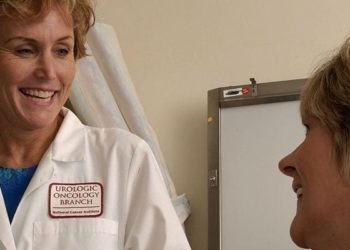Characterization of negative outcomes associated with same-day cancellation of cancer surgeries
1. This retrospective study found that patients who experienced a same-day cancellation of their cancer surgery had significantly higher wait times and healthcare cost when compared to patients without a prior history of cancellation.
Evidence Rating Level: 2 (Good)
Cancer surgery cancellation can have negative consequences for all parties involved, including the healthcare system. A delay in surgery by even a few weeks may have a negative impact on curability and overall survival, especially with more aggressive malignancies. During the COVID-19 pandemic, many surgeries were cancelled, of which cancer surgeries were relatively protected likely due to the prioritization of oncologic procedures over nononcologic procedures. Previous research has investigated the effect of surgery cancellation on outcomes, but none have focused on cancer surgery specifically. This study aims to determine the incidence of same-day surgery cancellation in a universal healthcare context, and to determine the association of cancellations with outcomes. This study was a population-based retrospective cohort study in Ontario, Canada. Included were patients with a diagnosis of cancer from January 2010 to December 2016 as per the Ontario Cancer Registry (OCR) which boasts a high capture rate, >98% for all noncutaneous malignancies. Two cohorts were identified; a control cohort of patients who underwent cancer surgery with no prior history of cancellation, and a cancelled cohort of patients who underwent cancer surgery but with a prior history of cancellation. The overall cancellation rate was 1.74%; the cancelled cohort had 3539 patients, and the control cohort had 199599 patients. With respect to baseline characteristics, the cancelled patients were more likely to be younger and male, but this was not clinically meaningful. In addition, the cancelled cohort had a clinically and significantly higher comorbidity index than the control cohort. Genitourinary cancer surgeries were more likely to be cancelled, while gastrointestinal and “other” cancers were less likely to be cancelled. With respect to endpoints, wait times were significantly shorter in the control cohort than in the cancelled cohort (median 66.9 vs 25.4 days, p<0.001). Interestingly, patients in the cancelled group had overall higher survival (hazard ratio [HR] 0.921, 95% CI 0.882-0.960, p<.01) than patients in the control group. At 3 years, however, both groups had a similar survival rate. Patients in the cancelled cohort also had higher complication rates while in hospital than the control cohort (7.3% vs 4.9%, p<.01), specifically a higher rate of only myocardial infarctions. On univariable analysis after controlling for confounders, there was no significant difference between the two groups in all-cause hospital readmission and/or ED visit within 30 days (odds ratio [OR] 1.12, p=.76). The cancelled cohort was also found to cost approximately $1100 more than the control cohort (95% CI $3-$2196, p=.049). Overall, this study identified a low rate (1.64%) of same-day cancer surgery cancellation; these cancellations lead to increased wait times and costs of care but do not have an apparent association with 3-year survival, increased surgical complication rates, or postoperative ED use. A major limitation of this study was that only same-day cancellations were identified, which likely underestimates the true cancer surgery cancellation rate. Furthermore, only patients who eventually underwent their procedure were included, which also contributes to underestimation. This is an important study to identify the negative impact of surgical cancellations, specifically within oncology, and further research should investigate factors that contribute to surgical cancellations.
Click to read the study in The Canadian Journal of Surgery
Image: PD
©2022 2 Minute Medicine, Inc. All rights reserved. No works may be reproduced without expressed written consent from 2 Minute Medicine, Inc. Inquire about licensing here. No article should be construed as medical advice and is not intended as such by the authors or by 2 Minute Medicine, Inc.

![2MM: AI Roundup- AI Cancer Test, Smarter Hospitals, Faster Drug Discovery, and Mental Health Tech [May 2nd, 2025]](https://www.2minutemedicine.com/wp-content/uploads/2025/05/Untitled-design-350x250.png)







